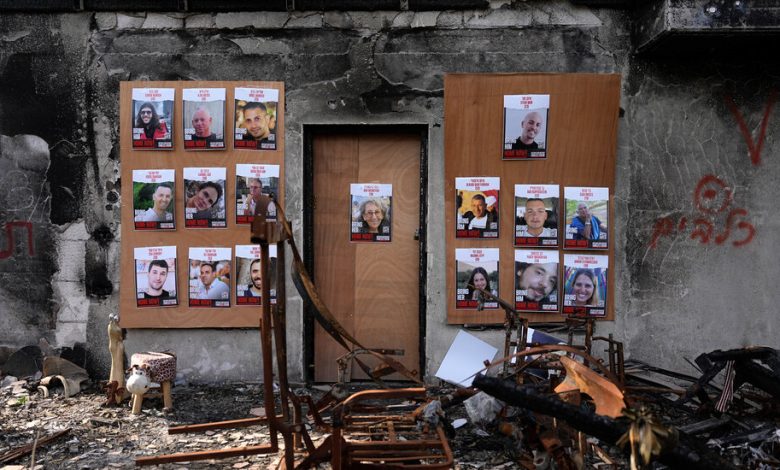Hamas Hostages and Families of Captives Sue Red Cross in Israeli Court

Dozens of people who were kidnapped from Israel by Hamas terrorists on Oct. 7 or are related to hostages have sued the International Committee of the Red Cross in an Israeli court, arguing the organization has not fulfilled its obligation to assist victims of armed conflict and violence and to protect their lives and dignity.
The lawsuit comes as the Red Cross has come under mounting political pressure from Israelis and their leaders — including Prime Minister Benjamin Netanyahu — to do more to persuade Hamas to let its aid workers and paramedics visit the remaining hostages. Israel believes 129 people, mostly men, are still being held captive.
Mr. Netanyahu has called on the Red Cross to put public pressure on Hamas to grant access to the hostages, but the organization’s president, Mirjana Spoljaric, has said “the more public pressure we seemingly would do, the more they would shut the door.”
The lawsuit, filed in Jerusalem District Court on Thursday, says the Red Cross has failed to visit the hostages in captivity to check on their health, provide them with medications and then report back to their relatives on their welfare. The complaint also asserts the Red Cross “did not and is not doing enough to bring about their release.”
The civil complaint was filed on behalf of former hostages and relatives by the Shurat HaDin-Israeli Law Center, an Israeli human rights group, and seeks about $2.8 million in damages, as well as a court order directing the Red Cross to visit all remaining hostages, provide them with medications and relay information about them to their families.
A spokesman for the I.C.R.C., Jason Straziuso, said the organization had not yet seen the lawsuit. He said Red Cross officials did not know where the hostages were being held in Gaza and could not visit them without assurance of safe passage from both Hamas and the Israeli military because of active fighting.
“Even if we knew where the hostages were being held, it’s quite possible that showing up on the doorstep unannounced could put them in danger, and we would never do that unless agreements were in place,” Mr. Straziuso said. He added the I.C.R.C. cannot deliver medications for the same reason.
Alyona Synenko, an I.C.R.C. spokeswoman in Jerusalem, said the organization’s efforts to gain access to the hostages had been taking place behind closed doors and were not apparent to the public.
“People who were held hostage and their families have gone through a horrific experience, and it is easy to understand their anger and frustration,” Ms. Synenko said.
A lawyer representing the families, Nitsana Darshan-Leitner, acknowledged the suit was unusual. The complaint argues the I.C.R.C. occupies a unique position under international humanitarian law and the Geneva Convention, giving it a mandate and moral duty to visit the hostages, check their well-being and fight for their release. The I.C.R.C. has not acted as it was “reasonably expected” to, the lawsuit says.
“The Red Cross does not exist in a vacuum,” Ms. Darshan-Leitner said. “There are ways it could have put pressure on Hamas — through the United Nations, through the roughly 196 countries that finance it, through the Palestinian Authority. They play an important role, a life and death role, and every day and every hour that goes by is critical.”
While the Geneva Convention empowers the I.C.R.C. to visit prisoners of war and victims of violence in conflict zones, the organization has said it cannot force its way in to places where hostages are being held. “People say ‘just go visit them,’ but they may not understand how difficult it is to do so,” Mr. Straziuso said.
Mr. Netanyahu said that a deal brokered in late November to exchange hostages for Palestinian prisoners included a provision for the I.C.R.C. to visit all the remaining hostages held in the Gaza Strip, but that aspect of the deal was not confirmed by the other parties.
Ms. Darshan-Leitner argued the current situation in Gaza carries echoes of the I.C.R.C.’s scant efforts during World War II to save Jews who were being deported and exterminated in concentration camps across Europe. The organization has acknowledged and apologized for that failure.
She also noted that the I.C.R.C. did not visit Gilad Shalit, an Israeli soldier who was held captive in the Gaza Strip for five years until his release in 2011, and has not visited other Israelis held by Hamas.
